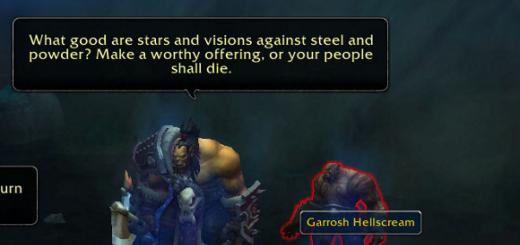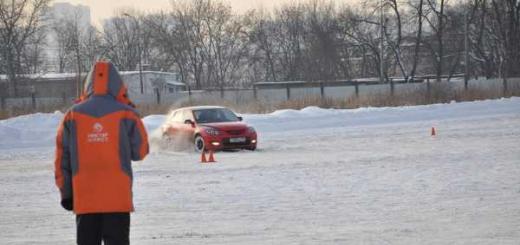Exercise 1.
Write down, determine which part of the sentence the underlined words are.
1. I'm fast began to descend from the hill
2. Gotta respect old age.
3. Run escalators are prohibited.
4. Sister asked us return By the evening.
5. After finishing school, I I will act in the Institute.
6. He had a desire run away from here.
7. Walk barefoot on the ground is a great pleasure.
8. He went to a sanatorium heal.
9. Alone able to live not every.
Exercise 2.
Highlight the grammatical foundations of the sentences. Determine the type of predicates. Determine the syntactic role of the infinitive.
1. He was afraid to go to the doctors.
2. A footman came to call me to the princess.
3. The old woman went to fuss about leaving.
4. He asked me to work on leaving.
5. The great national poet knows how to make both the master and the peasant speak in their language.
6. I respect native land I try to teach them.
7. Under no effort can a person convey the charm of this day.
8. In Moscow, I will neither see you, nor write to you, nor call you.
9. Rare drops of rain began to beat heavily on the ground.
10. The autumn rain will drizzle for a long time.
11. And as if in response to her words, a rare and warm rain quietly begins to rustle along the river and bushes.
12. Behind the gate, dense, neglected alleys immediately began.
13. Sinister rumors began to circulate.
14. They continued to sniff, doze and yawn for decades.
15. The sea at times completely stopped making noise.
16. And the blizzard, as if mocking, did not want to let up.
17. Antonenko ordered the people to leave the barge.
18. I will not allow you to speak badly about life in my presence.
19. Tagilov did not go to have breakfast.
20. She did not even have time to say hello to him.
Exercise 3
Determine the syntactic role of the infinitive, considering: 1) the semantic meaning of the personal verb and the infinitive, 2) what the action or sign denoted by the verbs in the infinitive refers to.
1. Soon the spring forest will meet its feathered masters.
2. Meet father from long-distance navigation is a great joy for us.
3. In the evening, my sister went to the station to meet her brother, who was returning from the camp.
4. The creative asset of the school received the right to meet the delegation from England.
5. Our class got the right to meet the guests who came to the opening of our school museum.
Exercise 4
Determine which secondary members of the sentence are the infinitive .
1. The thought of not finding her in Pyatigorsk struck my heart like a hammer.
2. Well, I wish you good fun.
3. Captain Tushin sent one of the soldiers to look for a dressing station or a doctor.
4. And now we are going to look for Palitsyno.
5. Cannons are fired from the pier, the ship is ordered to land.
6. I have an innate passion to contradict.
7. The next year, Nevzorov went to study abroad.
8. The habit of finding only a changeable side in everything is the surest sign of a petty soul, for the funny always lies on the surface.
9. The doctor recommended that I move more.
10. Logic is the art of making mistakes with the certainty of being right.
Exercise 5
Write down sentences, explain punctuation marks, determine the role of the infinitive.
1. The lieutenant goes out to find out if there is a connection.
2. Go check and we'll wait.
3. I also had personal reasons to go on vacation to the Caucasus.
4. Ivan Efimovich, what will you do after the war?
5. Helped to clarify the information in the archive.
6. The roads began to sag before our very eyes.
7. Refusing is uncomfortable.
8. The commander had the ability to make quick decisions.
9. The division continued to move forward.
10. Resting our hands on the sides, we helped the car get out into the meadow.
Exercise 6
Make a sentence so that the infinitive is part of the compound verbal predicate and another member of the proposal.
Tell, hurry up, guess, fulfill, learn, redo.
What can be the syntactic role of the infinitive in a sentence?
Exercise 7
Rearrange the sentences so that the infinitive is 1) the subject, 2) the predicate.
1. Learning to play the violin is my big dream.
2. Rereading works of classical literature is both useful and necessary.
3. Explain the placement of punctuation marks at the confluence of conjunctions - a task of increased difficulty.
4. The camp where I will rest in the summer is located on the shores of Lake Baikal.
5. Our class will have to prepare a concert for the holiday.
Exercise 8
Think of sentences in which the infinitive is:
1) subject; 2) predicate; 3) addition; 4) circumstance of the goal; 5) definition.
Exercise 9
Insert the missing letters, justify the spelling of words with spelling, underline grammatical basis sentences, determine the type of predicates and the syntactic role of the infinitive. What is the role of the infinitive in a sentence?
1) Life is good and life is good! (V. Mayakovsky) 2) Oblomov began to read aloud. (I. Goncharov) 3) Do not catch up with you crazy troika! (N. Nekrasov) 4) Forests teach a person to understand the mother of the red. (A. Chekhov) 5) Traveling around your native land is a great pleasure. 6) More than once an irresistible desire rose in her soul to express everything without concealment. (I. Turgenev) 7) We went to defend freedom, to rid light from darkness. (M. Isakovsky) 8) He went to the forest town to go skiing. (V. Kaverin) 9) It's sad for us to listen to the autumn blizzard. (N. Nekrasov) 10) Preparing for the exam is not so easy. 11) The task of the astronauts upon their return from the flight is to process and summarize the results of the research. 12) The most purposeful students will study according to a special program. 13) The detachment began to advance deep into the forest. 14) We went down to have lunch at Zima station. (V. Veresaev) 15) Pr_roda teaches us to understand mother_pr_red. (K. Paustovsky) 16) And already several times Judas sat down to breathe ... (L. Andreev) 17) I entangled the reins around my hand and fell asleep sweetly, waiting for the order to go ahead. (A. Pushkin)
Exercise 10
Determine which part of the sentence is the infinitive. Match the two sentences (see part A). Indicate the type of predicate in each of them. Insert the missing letters, open the brackets.
A. 1) We decided to talk about business. We've come to talk business. 2) I want to study chemistry additionally. - I stayed after school to study chemistry. 3) The tourists decided to have a rest on the shore of the lake. The tourists stopped to rest. 4) I came to ask for your help. - I will ask for your help. 5) My father promised to buy me skis. My father and I went to the store to buy skis. 6) It is useful for everyone to breathe fresh air. In the evening we went out for some fresh air. 7) I went to put up with a friend. He didn't want to put up with injustice.
B. 1) P_satel started working on the book. 2) He was recommended to live in the village. 3) He decided to remain silent. 4) I got out. 5) The guys decided to redeem themselves. 6) I went to say sorry. 7) I was offered to learn Khlestakov's monologue. 8) She had a habit of being late. 9) My brother asked me to meet him. 10) The travelers stopped to rest. 11) Travelers still made an effort to go a little ahead. (N. Gogol) 12) Finns sent children to St. Petersburg for Palm Week to ride children in their peasant sledges. (D. Likhachev) went to beg you for one favor. 2) Remember Chaplitsky, whom you helped to get rid of. 3) I told the coachman to go. 4) In short words, I explained to him that I had quarreled with Alexei Ivanovich, and I asked him, Ivan Ignat_ich, to be my second ... 5) I was frightened and began to ask Ivan Ignat_ich not to tell the commandant ... 6) Vasilisa Yegorovna left to talk about from_departure_daughter_. 7) I went to the house of the saint to see Mar_ya Ivanovna. 8) Go: our father ordered to let the officer in. 9) The people went to see off Pugachev. 10) Pugachev cheerfully greeted me and ordered me to go with him to the wagon. 11) He [Zurin] himself went out into the street apologizing to Mar_ya Ivanovna in (un) free (un) understanding_ and ordered the sergeant to take her the best apartment in the city_. 12) We stopped in Lars for the night. He [the Frenchman] advised us to leave the carriage in Coby and ride. 13) Marya Ivanovna went to say goodbye to the graves of her parents, who were buried outside the church. 14) The next day, the troops following the (not) friend received an order to return to the camp. (A. Pushkin)
Exercise 11
Insert the missing letters, open the brackets. Define the members of the sentence, explain the syntactic role of the infinitive. Set up punctuation marks.
A. 1) Sof_ya told me not to give Monomakh's crown. 2) In the settlement, the boys were well known and affably let in. 3) Sof_ya left for the village of Kolomenskoye and sent biruchs around the districts to convene a court of gentry. 4) [Menshikov] often lured Peter with generals, master orderlies and dwarfs to walk and play pranks on Kukui ... 5) It was difficult for the boyars to decide to shed the blood of such an ancient family. 6) Bring him to supper with me. (A.N. Tolstoy)
B. 1) The mistress was angry, burst into tears and ordered to look for him. (I. Turgenev) 2) Anyone can help, but they can’t help and h_teli! (D. Granin) 3) To comprehend the depths of the profession_and_m_shawl laziness optional lack of interest in special_ness_. (V. Koretsky) 4) What is required from the shepherd? Its main task is to provide animals with a well-fed life, without which people will not have milk, butter, or meat. 5) He was asked to wait. (A. Kuprin) 6) I ordered to put a suitcase in my cart to replace the bulls with horses and in last time looked back down the length ... (M. Lermontov) 7) I tried to please the princess, made her laugh heartily several times ... (M. Lermontov) 8) For a long time I resisted the temptation to heal somewhere in the shade. (I. Turgenev)
B. 1) Marya Ivanovna came up to greet papa and mama. (A. Pushkin) 2) Suddenly, Marya Ivanovna, who was at work, immediately announced that (necessity) forced her to go to Petersburg and that she asked for a way to go to her. 3) Lunch is over, the big ones went to the binet to drink coffee, and we went to the garden to shuffle our feet along the paths covered with fallen yellow leaves and talk. (L. Tolstoy) 4) Foke was supposed to close all the doors in the room. (L. Tolstoy) 5) When we were given ice cream and fruit, there was (not) something to do on the carpet, and we (not) looking at the slanting scorching rays of the sun got up and went for a walk. (L. Tolstoy) 6) Here Bezdomny _made an attempt to stop the hiccups that had tormented him ... (M. Bulgakov) 7) (B) in conclusion_ they asked to talk about yesterday's incident_ at the Patriarch's Ponds, but very (not) pr_st_valid the message about Ponti_ Pilate_ (not) surprised. 8) The poet's attempts to compose an application (at) the expense of a terrible consultant (did not) led (n_) to (what). (M. Bulgakov)
Exercise 12
Write with the missing punctuation marks. Underline all parts of the sentence. What syntactic function does the infinitive perform in these sentences?
1. Shame is the most precious ability of a person to put his actions in accordance with the requirements of that higher conscience which is bequeathed by the history of mankind. (M. S-Shchedrin.)
2. You can only give to the rich and you can only help the strong - this is the experience of my whole life. (M. Tsvetaeva.)
3. To love to see a person as God created him and his parents did not fulfill him. Not to like to see it the way it was done by the parents. Stop loving to see a table, a chair instead. (M. Tsvetaeva.)
4. To love one's Motherland means to ardently desire to see in it the realization of the ideal of mankind. (V. Belinsky.)
5. Great will is not only the ability to wish and achieve something, but also the ability to force yourself to give up something when it is needed. (A. Makarenko.)
6. I shouldn't dare to tell you about it. (I. Turgenev.)
7. Shubin wanted to start working, but the clay crumbled. (I. Turgenev.)
8. None of them wanted to start the conversation first. (S. Krutilin.)
9. A person should never lose the ability to be surprised. (K. Paustovsky.)
10. In Fedya's view, the real writer was a legendary being. He had to know everything to see everything to understand everything perfectly to do. (K. Paustovsky.)
11. During this year I have learned to understand fire and water. (Ya. Smelyakov.)
12. Oh, I want to live crazy:
All that exists - perpetuate
insane - humanize
Unfulfilled - to embody! (A. Blok.)
13. I came to you with greetings to tell you that the sun has risen ... (A. Fet.)
14. Tatyana on the advice of a nanny
Gathering at night to tell fortunes
Quietly ordered in the bath
Set the table for two appliances ... (A. Pushkin.)
15. It was more difficult to go down the mountain through the black oak forest than to go up. (N. Lyashko.)
16. To name means to know and therefore to know. (V. Bryusov.)
17. There is time to work and there is time to have fun. (Proverb.)
18. During the exercise, we were ordered to deploy antennas near Kim's possessions. (O. Prikhodko.)
19. Once Paderewski gave a concert in London. The hall was stuffy and two ladies asked to open the window. There was a strong draft. Paderewski turned to the ladies: “I have to ask you to close the window. After all, you can’t get two pleasures at once: listening to good music and killing a pianist.”
20. A person should never lose the ability to be surprised. If he real man not a briefcase full of papers. (K. Paustovsky.)
Test on the topic "Syntactic properties of the infinitive"
1. In which sentence is the infinitive the subject?
1) It was a pity to look at him.
2) What a great pleasure it is to wander in the forest!
3) Loving others is a heavy cross, and you are beautiful without convolutions.
4) To teach a scientist is just a matter of dragging.
2. In which sentences is the infinitive not the subject?
1) I hate to change the familiar to the unknown.
2) Fedor, don't let him out anywhere!
3) It is easy to give advice, but it is difficult to follow it.
4) It’s embarrassing to ask for something in the house.
3. In what sentences is the infinitive part of the predicate?
1) Did it happen to you sometimes on a rainy winter day, in the late quiet light, to sit alone, without a candle in the office?
2) He is always ready to help both with advice and deed.
3) Losing a family is not a shame - it was not your fault.
4) Losing your head is a shame, but that's what war is for. (A.T.)
4. In which sentences is the infinitive not included in the predicate?
1) Ivan Ivanovich was a respectable man, of the most subtle manner, he could not stand rude or obscene words.
2) Nozdryov continued to laugh at the top of his lungs.
3) Auntie invited both families to visit her for two weeks.
4) Talking to her was easy.
5. Set the relationship between the highlighted word and its role in the sentence.
1) What a great pleasure it is to wander in the forest.
2) The sacred ability to speak is given to us.
3) It freezes beautifully at the parade, and goes on guard to warm up.
4) I'm not afraid of death, oh no! I'm afraid to disappear completely.
a) addition
b) circumstance
c) definition
d) predicate
6. In what sentences is the infinitive an object?
1) An attempt to solve the problem in the shortest way failed.
2) I told both of them to drink two glasses a day of mineral water and bathe twice a week in a adjustable bath.
3) It is very useful to sharpen and polish your mind about the minds of others.
4) Everyone asked her to sing something.
7. In which sentences is the infinitive not a definition?
1) Pierre got into the carriage with the intention of going home.
2) Troyekurov ordered the guests to get out.
3) To the sound of wheels, the writer quickly sketched line after line, afraid to miss the emerging idea.
4) Now I am embarking on a new path from my past life to rest.
8. In what sentences is the infinitive a circumstance?
1) Since we had holidays, every day we went to the Novodevichy Convent to draw landscapes.
2) Chichikov went into the room to get dressed and wash.
3) She said it quite loudly and probably with the intention of pricking me.
4) Petrushka was ordered to stay at home, look after the room and the suitcase.
9. Indicate the numbers of sentences in which the infinitive is not part of the predicate.
1. We arrived at the place, to the birch current, only in the evening and, as usual, immediately began to prepare for the night. 2. Even before the arrival of birds (grouse flock to the current at sunset), you need to chop firewood, make a bed from the branches. 3. Here, at the hunting fire, I planned to spend more than one night. 4. In the evening, having prepared a lodging for the night, we split up. 5. The satellite went to look for neighboring currents, and I was left alone. 6. After seeing off a friend, I trampled on the fire, took a gun and slowly headed into the current. 7. Under an old birch, I chose a high hummock and, lighting a pipe, prepared to listen and observe. 8. I have never seen such an extraordinary number of capercaillie at the currents. 9. I sat spellbound, not moving, afraid to move. (according to I. Sokolov-Mikitov)
10. Indicate the numbers of sentences in which there is an infinitive that performs the function of a definition.
1. The Belaya River began to overflow its banks and flood the meadow side. 2. My father claimed that it was difficult to drive through those places that were flooded with spring water. 3. But to me all such obstacles seemed completely unworthy of attention. 4. The desire to move to Sergeevka as soon as possible became in me a painful striving of all my thoughts and feelings towards one subject; 5. I could no longer do anything, I was bored and picky. 6. It was possible to foresee and had to take measures to tame this passion in me, this ability to be carried away to self-forgetfulness and fall into extremes. (according to S. Aksakov)
In a sentence, the indefinite form of the verb can act as any member of the sentence.
Approach (subject) it was scary for my brother (M. Gorky).
I ready to talk (predicate) you, field, about wavy rye in the moonlight (S. Yesenin). Yes, and you will go your own way spray (circumstance) joyless days (S. Yesenin). He was sent to her on an errand handed over b (definition) sign (A. Pushkin). Mother in tears punished me cherish (addition) your health, and Savelich look for a child (A. Pushkin).
IN the role of the predicate the infinitive most often appears in the following syntactic constructions:
1) one-part impersonal and infinitive sentences: It is best to understand and forgive!
2) in two-part sentences as part of a compound verb predicate. I wanted to say goodbye to you as a friend (M. Lermontov).
3) in two-part sentences as a simple verbal predicate in a situation where it is likened to forms of the indicative mood and receives a temporary meaning with a nominal subject:
And he stomped, knocked, shouted - nothing came of it!
Subject function
can perform an independent infinitive with a predicate, a noun expressed by a noun, a predicative adverb, another infinitive, less often an adjective in full form instrumental with a link.
Living on earth, even without being in love, is a glorious occupation (A. Chekhov). "To live is to know!" - repeated Lisa (M. Gorky).
as a circumstance
the purpose of the infinitive appears if it refers to verbs of motion (walk, run, jump, move, drive, etc.): We've come to say goodbye.
You came here to listen to my confession, thank you (M. Lermontov). A neighbor sometimes comes over to play cards (A. Pushkin). Tired of spending the night, the fighters went from all the lairs to warm themselves by running, to wash themselves with snow - hard as sand (A. Tvardovsky).
The infinitive, often used in roles of inconsistent definition
, explains an abstract noun with a modal meaning of necessity, possibility, obligation, desirability, will, etc. and denotes a sign by internal content: The desire to live did not leave her for a minute.
.
He gave a strict order not to let her out of the room and to make sure that no one spoke to her (A. Pushkin). I have an innate passion to contradict (M. Lermontov).
Sometimes the infinitive with verbs is addition. The infinitive complement denotes an action as an object to which the action of another person is directed (asked to stay, invited to sit down): The king ordered the sleigh to be brought in.
Gilyasova Tatyana Mikhailovna,
teacher of Russian language and literature MBOU Irkutsk secondary school with in-depth study of individual subjects No. 2
slide 2
collect..army
turn..take
sad..ny
cuddle
hello..hello
Lesson Keyword
slide 3
collect
blame
sad
take offense
Hi
Lesson Keyword
slide 4
I N F I N I T I V
Lesson Keyword
slide 5
Syntactic roleINFINITIVE
Lesson topic
slide 6
Infinitive
Syntactic role
The main members of the proposal
Subject
Predicate
Secondary members of the sentence
Addition
Definition
Circumstance
Basic terms and concepts
Slide 7
2. We must respect old age.
Examination homework
Slide 8
find the mistake
3. It is forbidden to run on the escalator.
5. After finishing school, I will go to college.
1. I quickly began to go down the hill.
4. The sister asked us to return in the evening.
Slide 9
Infinitive as subject: #3 and #5
test yourself
3. It is forbidden to run on the escalator. (= running)
5. After finishing school, I will go to college.
Infinitive as a predicate: No. 1 and No. 4
1. I quickly began to go down the hill. (PGS)
4. The sister asked us to return in the evening.
Slide 10
2. We must respect old age.
must respect - GHS
4. The sister asked us to return in the evening.
back - ADDITION
5. After finishing school, I will go to college.
I will do - PGS
6. He had a desire to run away from here.
run away - DEFINITION
7. Walking barefoot on the ground is a great pleasure.
walk - SUBJECT
8. He went to a sanatorium for medical treatment.
heal - CIRCUMSTANCE
9. Not everyone is able to live alone.
able to live - GHS
Checking homework
slide 11
1) the semantics of the sentence;
2) intonation;
3) ask a semantic question to the infinitive;
4) determine the syntactic position of the infinitive (word order);
5) syntactic environment.
Program of action
To determine the syntactic role of the infinitive, it is necessary to comprehend
slide 12
Methods for determining
syntactic role of the infinitive
in a sentence
with the help of instruction schemes
slide 13
1. Infinitive as subject
Slide 14
2. Infinitive as a predicate
slide 15
3. Infinitive as an addition
slide 16
4. Infinitive as a definition
Slide 17
5. Infinitive as a circumstance
Slide 18
syntactic bingo
Slide 19
syntactic bingo
I will paint a portrait
I started drawing
portraits of people and
I like it.
Desire to draw
came to me early.
I came specially
2. An order came to stop all work.
instruction (what?) to stop - definition
3. I won't ask about anything.
(what will I do?) ask - ASG (bud. time)
4. The passenger asked the driver to stop the bus.
asked (about what?) to stop - addition
Check answers
slide 23
Homework
1. In the linguistic fairy tale about the Infinitive, write sentences by analogy (“Syntactic Lotto”).
You can take the words:
meet
stop
ask
talk etc.
2. Invent the ending of a linguistic fairy tale about the Infinitive.
View all slides
Parsing order
I. Part of speech. General value. Initial form (infinitive).
II. Morphological features.
Permanent features: a) view; b) transitivity; c) return; d) conjugation.
Non-permanent signs: a) inclination (indicative, imperative, subjunctive); b) time (if any); c) number; d) person (if any); e) gender (if any).
III. syntactic role.
initial form of the verb
Remember: infinitive may be any member of the proposal .
However, the definition of the syntactic function of the infinitive is often difficult.
In order not to be mistaken in determining the syntactic function of the infinitive, it is necessary to carefully study the theoretical material on this issue.
The infinitive as the main members of the sentence
v Independent infinitive standing at the first place in the offer and intonation separated from the predicate, is an subject . He names the action, the characteristic of which is contained in the predicate. At the same time, as a rule, it contains a defined concept, about which some kind of judgment is expressed:
Live means to work.
Play Hockey is his main passion.
Create happiness is high work.
Everything exaggerate was his passion.
v The infinitive subject can take and postposition if the second main member at the beginning of the sentence has explicit estimated value:
The scariest part of our job is stay in your growth.
His business was patronize junior and take care about the elders.
Wasted labor - to fish without hook and to study without a book.
v Presence at one of the main members of the bundle THIS indicates that we have a predicate, and infinitive - subject :
It's against our law commemorate old.
This is the most affordable way to exalt yourself in your own eyes - another humiliate .
What happiness is respect parents.
v Sometimes the order of the words is decisive in determining the main members:
Become a sailor - his dream . His dream – become a sailor .
v The infinitive-subject, like the infinitive-predicate, can include words dependent on it, if one verb does not convey the meaning of the statement. Often this is found in proverbs, aphorisms:
Steal from a thief - only time to waste .
Fool to teach – what to heal the dead .
play a song – no field to yell .
To do nothing – hard work .
house to lead – don't shake your beard .
About the decision to speak - only confuse .
To drink a tea – don't cut wood .
v Difficulty can arise when the infinitive is combined with words in – ABOUT .
Remember:
if the infinitive is at the first place in the offer and followed by the word on the – ABOUT , in front of us two-part offer with subject - infinitive :
Argue with him useless .
Tell jokes with liberalism dangerously .
Permutation of the infinitive in second place after the word - ABOUT , which is a category of state, turns the sentence into the impersonal :
It's useless to argue with him.
It wasn't easy to get to before work that day due to a snowstorm.
It's dangerous to joke with liberalism.
The presence of words of the category of state in the infinitive must, must, must, cannot, can, etc. says that this is a predicate of impersonal sentences (regardless of word order):
you have here you can get lost .
Ask about it it was impossible .
Need to find another solution.
v Independent infinitive can act as predicate in the so-called monolithic infinitive sentences (a kind of impersonal constructions):
Can't see more luck to you!
Raise sail!
Everyone get ready ! be silent ! Raise no objection commander!
Whom be in love ? To whom believe ?
Such constructions are most often ordered in nature, they are distinguished by categorical statements.
v Most often the infinitive is used in a compound verb predicate, which has two parts : auxiliary And basic. First transmits grammatical meaning mood, tense, person, number or gender, second (infinitive) - basic lexical meaning.
An auxiliary verb can have phase value (beginning, continuation, end of action ( began to gather, began to argue, continued to talk, stopped sawing ) and is used with the infinitive only imperfect:
At my sister's began to stick together eyes.
Welcoming host started me treat .
Other meanings - modal: possibility / impossibility of action ( didn't dare to confess ), obligations ( forced to endure, must go ), expressions of will (desirability, determination, readiness) - changed my mind about buying ; subjective-emotional character ( loved to eat ); estimates of the degree of commonness of the action ( used to command ).
In the presence of two verbs (conjugated and infinitive), both are part of the verbal predicate, if actions are to one person - the subject of action:
Ranks are given by people, and people may be deceived . (Griboyedov)
If actions are performed different faces, then the infinitive is not part of the compound verb predicate, but acts as a minor member:
Brother asked Pavka come no matter what. (N. Ostrovsky)
Strictly b forbade I'm on the shot for these gentlemen drive up to the capitals. (Griboyedov)
Infinitive in the role of minor members of the sentence
Ø The infinitive can function inconsistent definitions . In this case, he explains nouns with modal meaning possibilities, necessity, desirability, will, etc. :
× noun which? × noun which?
solution refuse fear make a mistake
× noun which? × noun which?
need meet a wish help .
Less commonly, the infinitive defines abstract nouns with a different meaning: manner argue, pleasure hunt, thought go, refusal obey and etc.:
× noun
Only hope which?) save supported her son.
× noun
They were driven by desire which?) to find out truth.
× noun
Grushenka took a promise from him ( which?) come after her at twelve o'clock.
The opportunity suddenly arose which?) as soon as possible leave from this city.
Ø The infinitive is addition if the conjugated verb has a full lexical meaning, and the actions of the verbs are to different people :
I beg you about what?) talk on the merits of the case.
Father taught me what?) walk on a boat with a pole.
The king deigned to order what?) us you to him call . (P. Ershov)
In these examples, the actions of the verbs are to different people (ask I , but will speak companion ; learned father , but going on a boat a son ; ordered Tsar , but came to call him subjects ).
ü Much less common are cases when the infinitive-complement denotes an action the same subject:
Yesterday we agreed about what?) go to the cottage
Within a week he learned what?) ride on skates.
Sister quickly got used to ( for what?) look after for a sick mother.
Ø The infinitive can be purpose circumstance . At the same time, he joins only to the verb . The ability to carry an infinitive circumstance is possessed mainly by verbs moving in space ( lay down relax , sat down read , went walk , ran catching up). If the infinitive refers to the verb of movement, then the subject of the action named by the infinitive and the subject of the action named by the supporting verb must be match :
Summer and autumn we're driving for Kama ( for what purpose?) collect mushrooms.
Wayfarers settled down by the stream ( for what purpose?) relax And feed horses.
The syntactic role of the infinitive
| Member of the proposal | Examples |
| Subject | Repeat Yes teach - sharpen the mind. Amazing and fun activity lie on your back in the woods and look up. Laugh healthy. |
| Predicate(or is part of the predicate) | To you not to see such battles! Argue with him I never could not . Liza decided certainly her to accompany . Hurry with an answer no need . |
| Addition | Crossing over is he important sat down and a prisoner let down ordered. General Ants ordered fire . |
| inconsistent definition | He had a cherished dream – get over to the capital. |
| Circumstance goals | To the Pavlysh school drive to study from different countries. |
To be continued…
A.V. Kuklina
SYNTAXIC FUNCTIONS OF THE INFINITIVE
AS COMPOSITION OF VERB INFINITIVE STRUCTURES
The article attempts to describe the syntactic functions of the infinitive as part of verbal infinitive constructions in the unity of the linear and supralinear aspects.
The question of the syntactic functions of words and phrases in a sentence has not lost its significance in the science of language until now. This is due, first of all, to the fact that the members of a sentence are often interpreted from formal positions (members of a sentence are replaced by the logical concepts of subject, predicate, object), morphological positions (members of a sentence are identified with parts of speech), as well as structural ones (members of a sentence are determined by the position occupied by them in a sentence) positions. Little attention is paid to the grammatical side of the problem: as O.V. Alexandrova (Dolgova), the predominantly grammatical description of the members of the sentence is limited to the formulation of "questions" that are answered by these members of the sentence.
Numerous studies in this area, carried out primarily in the framework of the Moscow State University school under the direction of O.S. Akhmanova and her followers, convincingly showed that the most promising approach is in which the members of the sentence are interpreted as "the most typical combinations of a given syntactic connection and a given content of syntactic relations as the most regularly reproduced in various (diverse) statements" . In other words, the members of a sentence can be represented as more or less typical functions performed by words or phrases in the construction of an utterance.
The fruitfulness of the functional approach was demonstrated on the basis of various syntactic constructions. Taking as a basis the methodological principle of the unity of syntagmatics and syntax, A.N. Morozova on the material of attributive phrases showed that the syntactic in-
© Kuklina A.V., 2006
Kuklina Anna Vladimirovna - Department of English Philology, Samara State University.
the interpretation of this phenomenon is ambiguous and depends on a number of colligation and collocation features that affect the prosodic organization of this phenomenon in speech. S. A. Suchkova, who studied substantive prepositional combinations, came to a similar conclusion.
However, the need for a functional description of the member structure of a sentence is not limited to substantive groups. Of particular interest in this regard are verbal constructions, primarily combinations of the personal form of the verb with the infinitive. Verbal infinitive constructions have received enough Full description primarily from the point of view of their structure (A.S. Hornby, Ya.M. Vovshin). The semantic aspect of the implementation of infinitive constructions has not been disregarded either: most works provide a fairly detailed list of verbs in the personal form, after which the use of the infinitive is mandatory (L.S. Barkhudarov, O.G. Yagodnikova). Regarding the functional load of infinitive constructions in a statement, it should be said that there are still no clear criteria to distinguish between the roles of the infinitive in each specific case.
It is well known that the infinitive in a sentence can act as a component of a sentence member and as an independent member of a sentence. So, I.P. Ivanova and her co-authors talk about the infinitive as an object in the construction I wanted to tell them before they discover, at the same time L.S. Barkhudarov describes the infinitive in the structurally identical construction He seems to know it as part of a verb compound predicate. A different approach, based on the rejection of the opposition part of the predicate / addition, is offered by G.G. Pocheptsov. Here, as the scientist believes, one should talk about the so-called complication of the predicate, as a result of which a complex syntactic structure arises, its syntactic status changes. Therefore, infinitive constructions of the type I like to sing, where both verbal elements correspond to one subject, should be considered as a complicated sentence member.
However, the matter is not limited to the problem of the independence of the infinitive as a member of the sentence. In the interpretation of the infinitive, the "eternal" question of distinguishing between the secondary members of the verb group - additions and circumstances - is quite clearly manifested. V.V. Burlakova analyzes various approaches to the distinction between complement and circumstance (primarily semantic and transformational) and comes to the conclusion that it is fundamentally impossible to find universal objective criteria for their distinction. B.A. Ilyish proposes to speak of "neutralization of differences" in cases where the object and circumstance cannot be distinguished, to call them "secondary members" without clarifying the syntactic essence.
All of the above convincingly showed that it is not possible to resolve the issue of the role of infinitive constructions in a sentence using the methods existing in linguistic science. In our opinion, it is the appeal to the function performed by the infinitive in the statement that will allow us to get rid of both the structural and the semantic approach to delimiting the elements of the verb group.
A.I. Smirnitsky believes that "the function of the infinitive in a sentence ... is the further disclosure of the word to which the infinitive refers, that is, the function of explanation, while the specific relationship between the infinitive and the words combined with it is determined by the semantics of these words." It is on the meaning of the components of infinitive constructions that it depends whether the impersonal form of the verb approaches the object or circumstance. In other words, the explanation (extension) acts as a special member of the sentence, developing the content of the word preceding it. The syntactic connection of the explanation with the control word is characterized by sufficient mobility, approaching in its expression an attributive or complex connection.
The thesis that an appeal to sounding speech will make it possible to find objective criteria for determining the syntactic role of infinitive constructions was voiced in A.N. Morozova "Dialectical unity of linear and supralinear series in the dynamics of utterance". Within the framework of this article, the task is to describe the syntactic functions of infinitive constructions in the light of the interaction of their linear organization (morphosyntactic and lexical-phraseological features) and the supralinear utterance series (prosodic organization of speech segments).
Audio recordings of works of English fiction the second half of the twentieth century (J. Fowles "The French Lieutenant's Woman", J. Harris "Chocolate", S. Townsend "Adrian Mole and Weapons of Mass Destruction"), read by professional actors. The total sample size is about 530 speech units, which are distinguished by a significant variety both in morphosyntactic and lexical-phraseological terms.
Held structural analysis material showed that both the verb in the personal form and the infinitive can have dependent components, and the latter are words, phrases and predicative units:
1. personal verb + infinitive + (dependent component):
When I got home to Ashby de la Zouch my parents informed me that they had decided to sell up (ST, p. 27).
I meant to do what was best (FLW, p. 428).
2. verb in personal form + dependent component + infinitive + (dependent component):
She warned me to take care (ST. P. 74).
- "I'll tell Anouk to remind you," I told them (Choc. P. 37).
As the analysis showed, the most typical construction is “personal verb + infinitive + (dependent component)” (74.5%), while “personal verb + dependent component + infinitive + (dependent component)” is less common. common (25.5%).
It is known that the speech flow is divided into syntagmas with the help of prosodic means. The phrasing of a particular speech work depends on its content, as well as the intention of the author, that is, due to the need to convey to the listener the meaning of the statement. First of all, the syntactic construction of the syntagma affects the phrasing of the text. As observations have shown speech material, the factor of the contact or distant location of the infinitive in relation to the verb in the personal form can influence the supralinear organization of the utterance. And although it is impossible to speak of an unambiguous correspondence between the prosodic design of the syntagma and its structural features, one can still distinguish some patterns:
(1) He Iknew at \once Z where he , wished to ...go|| (FLW. P. 117)
(2) She llooked to .see his reaction|| (FLW. P. 141)
(3) So I preltended to -search the \racks|| (ST. p. 14)
(4) There were \months| \years left in her| and she "wanted to -see A\merica| iNew \York + the iFlorida ...Everglades|| (Choc. P. 45)
(5) My \mother f had in\vited them| to lhave a -cup of \tea|| (ST. P. 72)
(6) And ,then| she turned \fully to .look at Charles|| (FLW. P. 170)
(7) I isat on the /balcony| to icool Mown|| (ST. P. 150).
(8) It "took longer than -I had "hoped| to ,get to ,Deepcut „ Barracks| due to the imany ciga\rette stops| delmanded by my ..passengers|| (ST. P. 50)
In examples (1), (2), (3) and (4), infinitive constructions have a close syntactic connection, as they are characterized by the global nature of the prosodic expression, as evidenced by the absence of a pause between the verb in the personal form and the infinitive, as well as the emphasis of both in the speech stream through even and uneven tones. In examples (5), (6), (7) and (8), the personal verb and the infinitive are in a distant position, and not only the controlling verb, but also the infinitive have dependent components. This factor affects the phrasing of the speech flow: syntactic links are weakened, as evidenced by the implementation of the pause. The prosodic solidity of the infinitive construction is destroyed, the syntactic connection between its components is weakened, as a result of infinitives with dependent components
nentami gains greater independence, functioning as an independent member of the proposal.
In addition to morphosyntactic factors, the prosodic realization of verbal infinitive constructions is influenced by lexical and phraseological features, that is, the semantics of the verb in the personal form. The literature on this issue contains information about the lexical characteristics of verbs in the personal form that attach the infinitive. Most control verbs have one of the following meanings: the value of the modal characteristic of the connection of actions with the subject (can/could, may/might, must, shall, should, to be, to have, ought, dare, need); specific characteristics of the action (to begin, to come, to continue, to get, to go, to leave, to move, to return, to run, to set out, to start, to stay, to stop, to turn); appearances of action (to appear, to seem, to take); expected action (to happen, to prove, to think, to turn out); the relationship of the subject to action (to bear, to bother, to care, to dread, to hope, to intend, to like, to long, to want, to wish); reality of action (to arrange, to decide, to manage, to pretend, to refuse); the feasibility of the action (to attempt, to deign, to try); processes of mental activity (to be expected, to be meant, to be supposed); communication processes (to be asked, to be said); provocativeness (to be allowed, to be called, to be empowered, to be forbidden, to be instructed, to be persuaded).
The prosodic globality of the infinitive construction can be destroyed if the verb in the personal form is so semantically saturated that it implements the predicative function in isolation from the infinitive. In such cases, the infinitive only complements the meaning of the verb in the personal form, which is reflected on the supralinear level through the implementation of a pause between the components of the infinitive construction and the use of uneven tones, and the presence or absence of dependent components in both the verb in the personal form and the infinitive does not matter. Most often, semantically more significant are the verbs denoting the reality of the performance of the action (1), as well as the specific characteristic of the action (2):
(1) I decided| to \talk to her to , day|| (Choc, p. 134)
II pre „tended| Not to \notice| until the "ladies f had left the \shop with their ..parcels|| (Choc, p. 31)
(2) iShe just -went up\stairs| to Ilie ...down|| (Choc, p. 104)
He I smiled - grimly at \Charles| then \stopped| to Itop lup their ...glasses|| (FLW, p. 152)
In our opinion, the results of the experimental prosodic study allow us to say that the colligative and collocation features of infinitive constructions have a significant impact on their functioning in a sentence. The infinitive as part of a construction can act either as part of the predicate, or as an independent member of the sentence, receiving a certain prosodic design. syntactic
the connection between the components of the construction is characterized by sufficient mobility, approaching in its expression in different cases to an attributive or complex connection.
1. Dolgova (Aleksandrova), O.V. Syntax as a science of speech construction / O.V. Dolgov. - M., 19S0.
2. Akhmanova, O.S. Dictionary linguistic terms/ O.S. Akhmanov. - 2nd ed., stereotypical. - M., 19b9.
3. Morozova, A.N. Dialectical unity of linear and supralinear series in the dynamics of utterance: dis. ... Dr. Philol. Sciences / A.N. Morozov. - M., 199b.
4. Suchkova, S.A. A substantive phrase with the preposition "of" in the dynamics of an utterance. abstract dis. ... cand. philol. Sciences / S.A. Suchkov. - Samara, 199S.
5. Hornby, A. S. Constructions and revolutions in English/ per. from English. A.S. Ignatieva / A.S. Hornby. - M., 1992.
6. Vovshin, YaM. Transformational Syntax of Verb Constructions in Modern English / JM. Vovshin. - M^ot, 19S3.
7. L. S. Barkhudarov, Structure simple sentence modern English / L.S. Barkhudarov. - M., 19bb.
S. Yagodnikova, O.G. Grammar English verb in tables. Impersonal forms of the verb / O.G. Yagodnikova, L.P. Driga, L. A. Shamray, et al. - Kyiv, 19S9.
9. Ivanova, I.P. Theoretical grammar of modern English: textbook / I.P. Ivanova, V.V. Burlakova, G.G. Pocheptsov. - M., 19S1.
10. Barkhudarov, L.S. Grammar of the English language / L.S. Barkhudarov, D. A. Shteling. - 4th ed., Rev. - M., 1973.
11. Pocheptsov, G.G. Constructive analysis of the sentence structure / G.G. Pochep-tsov. - Kyiv, 1971.
12. Burlakova, V.V. Fundamentals of phrase structure in modern English / V.V. Burlakova. - L., 1975.
13. Ilyish, B.A. The structure of the modern English language / B. A. Ilyish. - L., 1971.
14. Smirnitsky, A.I. The syntax of the English language / A.I. Smirnitsky. - M., 1957.
List of sources of factual material and abbreviations adopted for them
1. Fowles, J. The French Lieutenant's Woman / J. Fowles. - Vintage, 199b. (FLW)
2. Harris, J. Chocolat / J. Harris. - Black Swan, 2000. (Choc)
3. Townsend, S. Adrian Mole and the Weapons of Mass Destruction / S. Townsend. -Penguin Books, 2005. (ST)
154 BecmHUK Ccrnry. 2006. No. 10/2 (50)
SYNTACTICAL FUNCTIONS OF THE INFINITIVE AS PART OF VERBAL INFINITIVE CONSTRUCTIONS
The paper deals with the syntactical functions of the infinitive as part of verbal infinitive constructions in speech, their morphosyntactical and lexico-phraseological peculiarities and prosodic realization.










